Era uma vez um homem chamado Orfeu.
Ele se apaixonou por uma mulher chamada Eurídice, mas o romance deles era
assombrado pela morte. Esta é a trama básica da lenda grega de Orfeu e Eurídice
– na lenda, Orfeu é o filho do deus Apolo e da musa Calíope, e daí vem seu
talento musical. Mas em 1959 Orfeu não precisou ser filho de um deus grego para
ser um personagem inesquecível na adaptação tropical da lenda.
Once upon a
time, there was a man named Orpheus. He fell in love with Eurydice, but their
romance is closely watched by no other than Death. This is the basic storyline
of the Greek legend of Orpheus and Eurydice – in the legend, Orpheus is the son
of the god Apollo and the muse Calliope, hence his musical talent. But in 1959
Orpheus didn't need to be the son of a Greek god to be a remarkable character
in the tropical adaptation of the legend.
O poeta e autor brasileiro Vinícius
de Moraes escreveu o musical “Orfeu da Conceição” adaptando a lenda grega para
a realidade do Rio de Janeiro. O musical estreou em 1956 – um ano antes de
Tennessee Williams escrever sua peça “Orpheus Descending” - e foi um sucesso.
As músicas foram compostas por Antônio Carlos Jobim, um dos músicos mais
famosos do Brasil na época.
Brazilian
poet and writer Vinícius de Moraes wrote the musical play “Orfeu da Conceição”
adapting the Greek legend to the reality of Rio de Janeiro. The play opened in
1956 – one year before Tennessee Williams wrote his “Orpheus Descending” - and
it was a success. The songs in the play were composed by Antônio Carlos Jobim,
one of the most famous Brazilian musicians at the time.
A peça chamou a atenção do autor e
diretor francês Marcel Camus. Camus fez uma proposta para adaptar a peça para o
cinema, e escreveu o roteiro com Vinícius de Moraes e Jacques Viot. Camus também
dirigiu o filme.
The play
called the attention of the French author and filmmaker Marcel Camus. Camus
made a proposition to adapt the play to the screen, and wrote the screenplay
with Vinícius de Moraes and Jacques Viot. Camus ALSO directed the movie.
Em “Orfeu Negro” (1959), Orfeu é um
motorista e músico – porque é raro viver de música no Brasil, e imagino que
também o seja no resto do mundo. Os únicos dias em que ele pode se dedicar
totalmente à música são os dias de Carnaval. E bem, qualquer coisa pode
acontecer durante o Carnaval no Brasil: pessoas podem se apaixonar, viver
experiências inesquecíveis, beijar, rir e chorar, e até mesmo a Morte pode
visitar a Terra.
In “Black
Orpheus” (1959), Orpheus is a driver and musician – because it's rare to be
able to make a living only as a musician in Brazil, and I imagine elsewhere
too. The only days he can be a full-time musician is during Carnival. And,
well, anything can happen during Carnival in Brazil: people can fall in love,
have unforgettable experiences, kiss, laugh and cry, and even Death can walk on
Earth.
Durante o Carnaval, Orfeu (Breno
Mello) conhece e se apaixona por Eurídice (Marpessa Dawn). Mas eles enfrentam
problemas: Orfeu tem uma noiva, a ciumenta Mira (Lourdes de Oliveira), e
Eurídice está sendo seguida por um estranho que está obcecado por ela. O
estranho é a Morte disfarçada.
During Carnival Orpheus (Breno Mello)
meets and falls in love with Eurydice (Marpessa Dawn). But there are
problems: Orpheus has a fiancée, the jealous Mira (Lourdes de Oliveira), and
Eurydice is being followed by a strange man who is obsessed with her. The strange man is actually Death
disguised.
É interessante notar que os atores
tinham pouca experiência prévia. Breno Mello era um jogador de futebol que, um
dia, foi parado na rua pelo diretor Marcel Camus. Camus perguntou a Breno se
ele queria fazer parte de um filme e ele foi escolhido – para ser o
protagonista! - ali mesmo. Marpessa Dawn, nascida em Pittsburgh – daí vem seu
nome exótico – havia feito TV na Inglaterra, mas foi como cantora e dançarina
em clubes noturnos na França que ela conheceu Marcel Camus, com quem mais tarde
se casou. Breno Mello e Marpessa Dawn faleceram em 2008, ele 42 dias antes
dela.
It's
interesting to notice that the actors had few previous acting experience. Breno
Mello was a soccer player who was, one day, stopped in the streets by director
Marcel Camus. Camus asked if Breno wanted to be in a movie, and he was casted –
as the lead! - on the spot. Marpessa Dawn, born in Pittsburgh – what explains
her exotic name – had been on TV in England, but it was as a singer and dancer
in French nightclubs that she met Marcel Camus, whom she later married. Breno
Mello and Marpessa Dawn passed away in 2008, 42 days apart.
Adhemar da Silva, que interpreta a
Morte, tem uma história ainda mais curiosa: ele era bicampeão olímpico. Vindo
de uma família pobre, Adhemar Ferreira da Silva decidiu se tornar atleta em
1947 porque gostou do som da palavra “atleta”. Adhemar competiu em salto triplo
e ganhou medalhas de ouro nas Olimpíadas de 1952 e 1956. De acordo com muitas
fontes, ele inventou a volta olímpica em 1952, quando correu ao redor do
estádio após sua vitória para ficar mais perto do público. Em 1956, ele fez
parte do elenco original de “Orfeu da Conceição”, e depois foi escolhido para
fazer o filme. Um homem de muitos talentos, Adhemar da Silva ganhou vários
campeonatos de salto triplo, falava sete línguas, cantava, tocava violão, foi
jornalista, estudou Belas Artes,
Direito, Relações Públicas e Educação Física – e nunca fez outro filme depois
de “Orfeu Negro”. Adhemar faleceu em 2001 – no mesmo dia em que o compositor
que trabalhou no filme, Luiz Bonfá, também morreu.
Adhemar da
Silva, who plays Death, has an even more curious background: he was a two-time
Olympic gold medalist. Coming from a poor family, Adhemar Ferreira da Silva
decided to become an athlete in 1947 because he liked the sound of the word
“athlete”. Adhemar competed in triple jump and won gold medals in the 1952 and
1956 Olympics. According to many sources, he invented the victory lap in 1952,
when he ran around the stadium after he won his first Olympic gold medal to
greet the crowd. In 1956, he was part of the original play “Orfeu da
Conceição”, and from them was hired to do the film. A man of many talents,
Adhemar da Silva won several triple jump championships, spoke seven languages,
sang, played the guitar, worked as a journalist, studied Art, Law, Public
Relations and Physical Education – and never made another film after “Black
Orpheus”. Adhemar passed away in 2001 – in the very same day the composer in
the film, Luiz Bonfá, also died.

Esta falta de experiência na atuação
foi responsável pelas performances naturais dos protagonistas. A falta de
dinheiro também foi benéfica, porque ela fez com que Camus utilizasse melhor
seus recursos, os recursos naturais ao seu redor, pois o filme foi rodado em
uma favela, e não em um estúdio, usando os cenários e as pessoas do local.
This lack of
acting experience was responsible for naturalistic performances from all the
leads. The lack of money to shoot was also beneficial, because it made Camus
use better his resources, there is, the natural resources he had around him,
because the film was shot in a shanty town – a favela – and not in a studio,
with its local houses and its local people.
“Orfeu Negro” ganhou a Palma de Ouro
em Cannes e o Oscar de Melhor Filme em Língua Estrangeira. Como ele foi
dirigido e produzido por franceses, o Oscar foi para a França, embora a
história e todo o elenco fossem brasileiros.
“Black
Orpheus” won the Palme D'Or at Cannes and the Oscar for Best Foreign Language
Movie. Since it was directed and produced by French people, the Oscar went to
France, even though the story and the whole cast were Brazilian.
“Orfeu Negro” é um musical,
misturando canções da peça, compostas por Antônio Carlos Jobim, e novas
canções, escritas para o filme por Luiz Bonfá. Todas as músicas são igualmente
adoráveis, e são perfeitas para se conhecer a bossa nova dos anos 50. Há também,
obviamente, bastante samba, fotografado lindamente em Eastmancolor.
“Black
Orpheus” is a musical, mixing songs from the play, written by Antônio Carlos
Jobim, and new songs, written for the film by Luiz Bonfá. All tunes are equally
engaging, and are perfect to get to know a little from what Brazilian music
sounded like in the 1950s – the Bossa Nova. There is also, of course, a lot of
samba, beautifully photographed in Eastmancolor.
A ideia de que “qualquer coisa pode
acontecer durante o Carnaval” é interessante de ser explorada – porque é
verdade. No entanto, o que algumas pessoas interpretam a partir de “Orfeu
Negro” é que todo dia é Carnaval no Brasil: nós sempre estamos cantando e
dançando, desfilando com roupas minúsculas, e não há lei por aqui. Posso dizer
que isso não é verdade – quer dizer, a parte de não haver lei é quase verdade.
Assim como “O Dragão da Maldade Contra o Santo Guerreiro” (1969), de Glauber
Rocha, que depende muito de rituais e misticismo, “Orfeu Negro” pode criar uma
má impressão do país.
The idea that
“anything can happen during Carnival” is a good one to be explored – because
really anything can happen during Carnival. However, what some people take from
“Black Orpheus” is that every day is Carnival in Brazil: we're always singing
and dancing, parading with diminutive clothes and there is no law here. I can
say this is not truth – I mean, the part about there being no law is almost
truth. Just like Glauber Rocha's “O Dragão da Maldade Contra o Santo Guerreiro”
(1969), that relies too much on rituals and misticism, “Black Orpheus” can give
a bad impression of the country.
Há muitas referências inteligentes à
mitologia grega que farão a alegria dos espectadores que já conhecem a lenda de
Orfeu e Eurídice – mas o filme pode ser visto também por aqueles que não a
conhecem. Mais do que isso: mesmo que o filme tenha uma visão do colonizador
acerca dos negros brasileiros, “Orfeu Negro” merece ser visto para ser
aproveitado, sentido e discutido.
There are
many clever references to Greek mythology that will delight the viewers who are
already familiar with the legend of Orpheus and Eurydice – but the film can be
viewed by those who don't know the legend as well. More than that: even though
the film has the clear European vision of Brazilian black people, “Black
Orpheus” deserves to be seen to be enjoyed, felt and discussed.
This is my contribution to the Box Office Jocks blogathon, hosted by
Paul and J-Dub at Return to the 80’s and Dubsism.

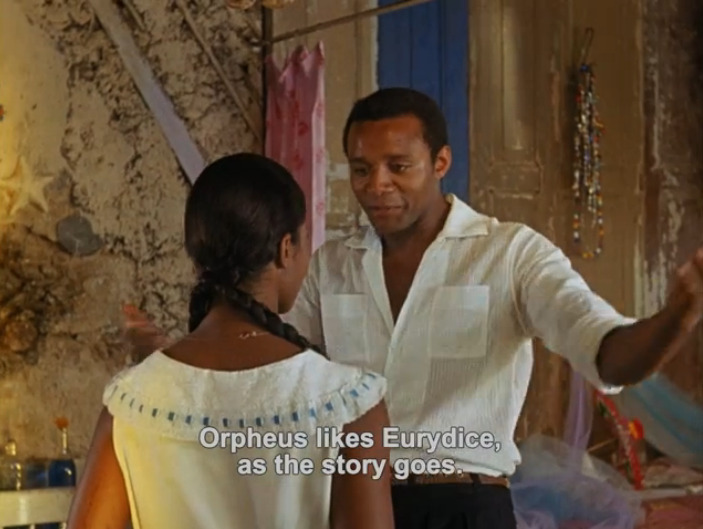

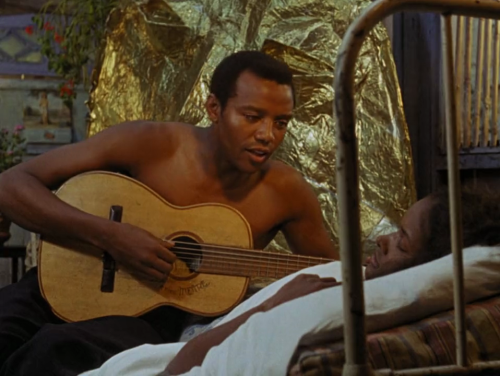

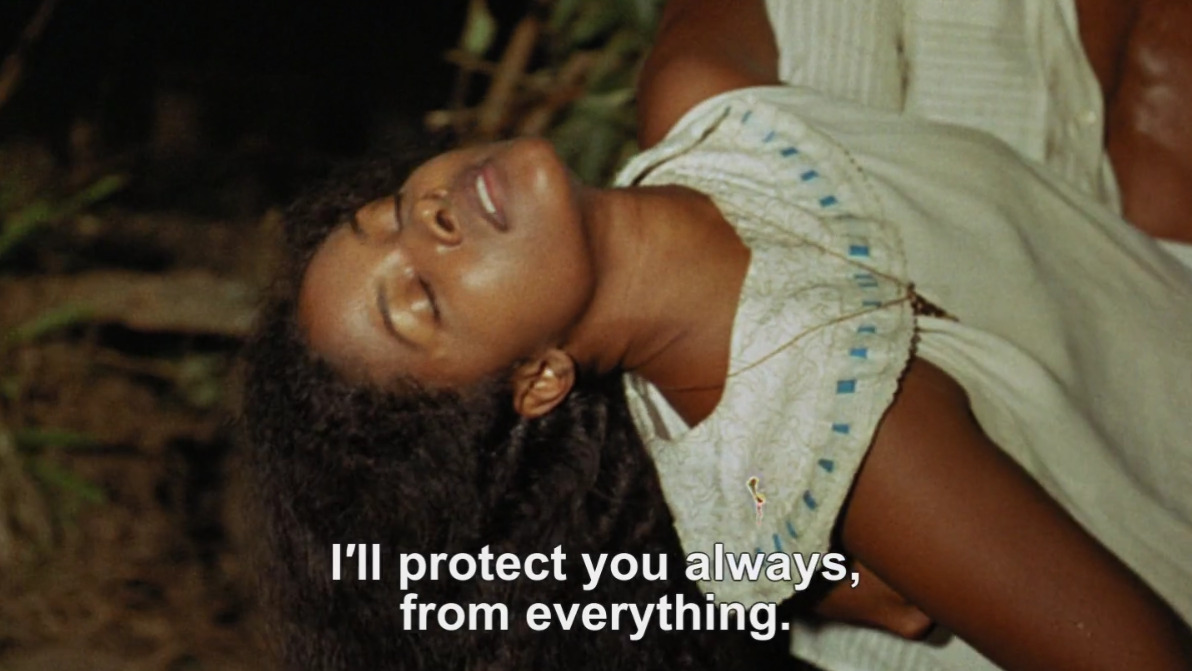
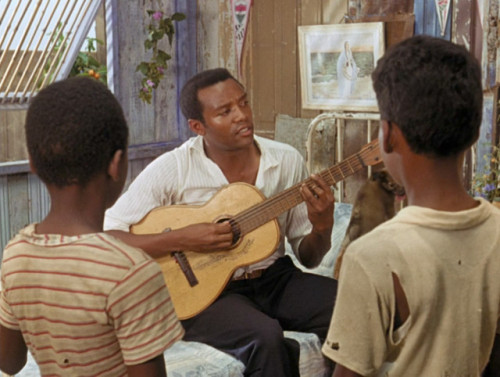


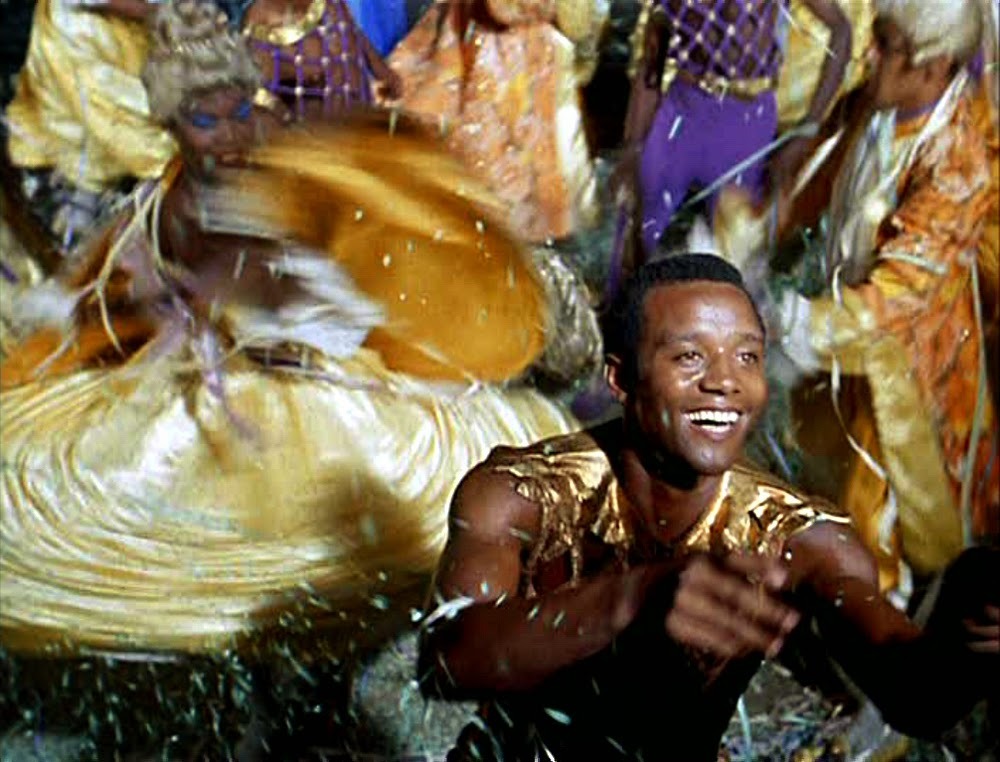
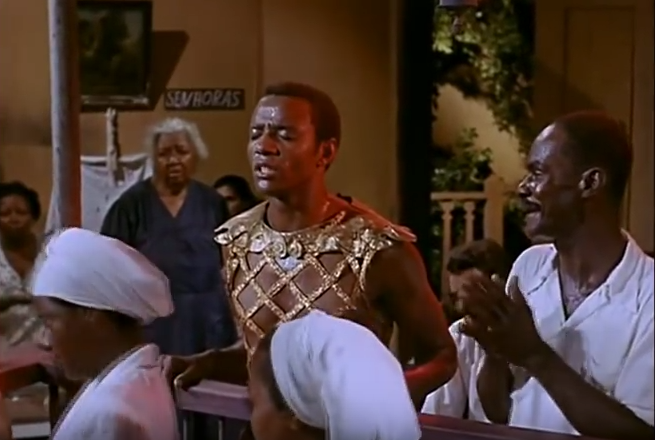
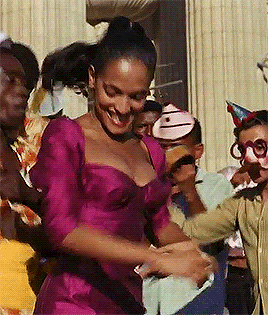
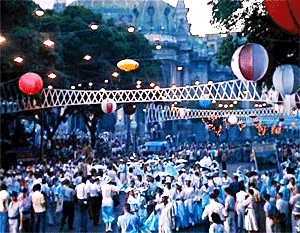
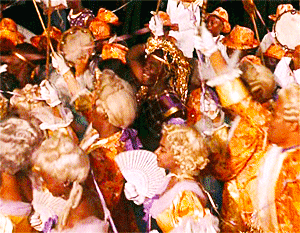

I'm not familiar with this movie, but this was a fun read and I'm glad you contributed it to this blog-a-thon!
ReplyDeleteQuem casou com Marcel Camus foi Lourdes de Oliveira.
ReplyDeleteTu estàs errando !! A esposa do Marcel Camus è a propia americana Marpessa Dawn. Se tu è do Rio a e ainda tem duvidas pergunte à propria Lourdes , esta vivissima e mora no Rio de Janeiro.
ReplyDelete